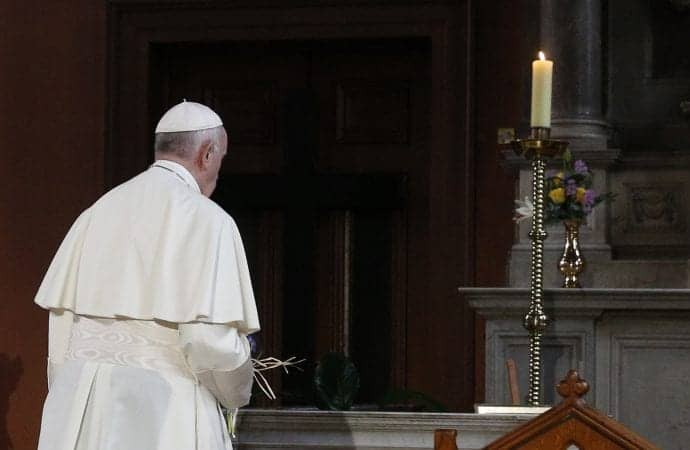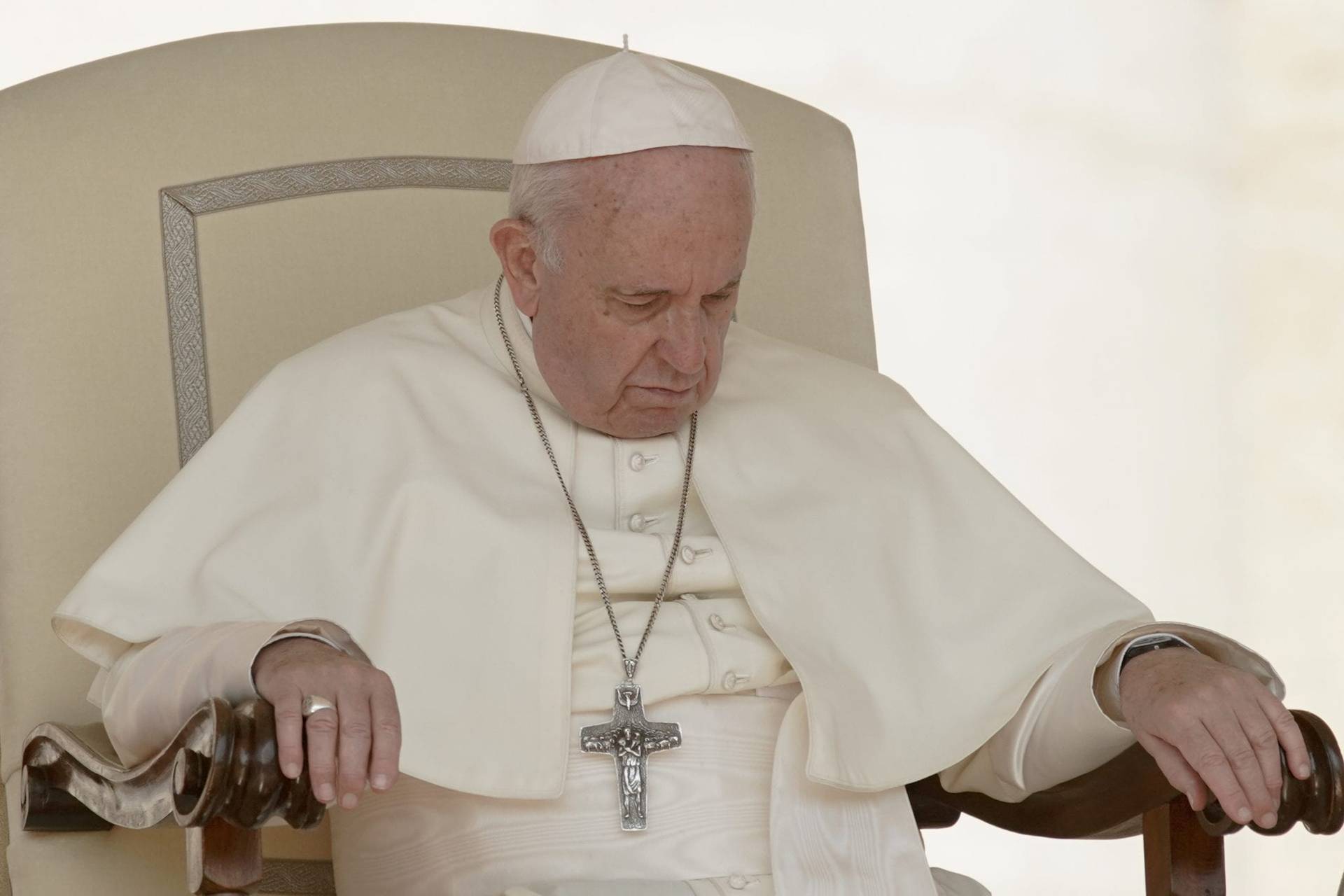DUBLIN — Addressing political leaders and civil society on Saturday in Ireland, Pope Francis asked: “Could it be that the growth of a materialistic ‘throwaway culture’ has in fact made us increasingly indifferent to the poor and to the most defenseless members of our human family, including the unborn, deprived of the very right to life?”
The pope’s words were delivered in the shadow of the country’s referendum in late May where the traditionally Catholic country voted overwhelmingly to legalize abortion.
In light of that new reality, a panel discussion earlier this week sponsored by the Irish Catholic considered “Post Referendum: Where Does the Pro-Life Movement Go From Here?”
While there was a shared lament over the number of Catholics who voted in favor of stripping away the country’s protections for the unborn, as well as trepidation over what the new law will mean for the conscience rights of medical professionals, the evening concluded with a commitment to “take the long view” and invest in rebuilding the “credibility” of the pro-life cause.
“A Massively Changed Culture”
In an effort to make sense of “why” the once-deeply Catholic culture had rejected Church teaching on abortion, David Quinn told attendees that the Irish Culture is a “massively changed” one, “in which the highest value is considered to be autonomy, and therefore, choice.”
Quinn, who is the founder of the pro-life and pro-family Iona Institute, said that given the rapid secularization in Ireland a “pathway to victory” against the referendum seemed impossible, but the scale of 67 percent of citizens voting in favor of it “took us all by surprise.”
While some Catholics faulted favorable media attention given to activists seeking to repeal the country’s abortion ban, Quinn said that when the country first enacted its constitutional ban on abortion in 1983, no major newspaper at the time was in favor of it.
More surprising, said Quinn, was that more citizens voted in favor of repealing the country’s abortion restrictions (67 percent) than they did in favor of gay marriage in 2015 (61 percent).
He noted that in the campaign for the legalization of gay marriage, Catholic activists would struggle to respond to the question, “What’s the harm involved?” — a question that has much more obvious implications when it comes to abortion.
Ultimately, Quinn concluded, Irish citizens voted in favor of abortion because “choice” has become “part of the way we live now” — where abortion, even if considered an evil, is viewed as a necessary evil for the sake of sexual freedom.
Concern for Freedom of Conscience
In considering the legal implications of Ireland’s new abortion mandate, lawyer and Irish Times columnist Maria Steen remarked that the task of analyzing the proposed legislation for the new law is similar to being asked “to watch an execution and describe it.”
One must examine the “technicalities involved in the procedure and outline it step by step,” Steen continued, “all with the purpose of and to the end of … killing an innocent person.”
While there remain uncertainties and ambiguities as to what type of restrictions, if any, will be put into place to prevent abortion for eugenic purposes, Steen warned that serious threats to freedom of conscience loom ahead, particularly for healthcare workers that seek to opt out of participating in abortion services.
Based on the current legislation, doctors are allowed to opt out — although they must find a replacement to perform the procedure — however attendants and lower level assistants are not able to do so.
“Real oppression subsists not just in performing or doing unjust acts,” Steen warned, “but in requiring others to participate in doing unjust things.”
“It reaches its zenith in requiring the rest of us to do these unjust things against our will,” she continued.
Steen also cautioned that pro-life doctors who refuse to offer abortion are likely to be targeted. Steen compared the situation to that in the United States where bakers who refuse to make a cake for a gay wedding are subject to, as she described, “Twitter mob justice.”
“None of this is necessary,” she insisted, but said “the point is to punish dissent.”
Love Always has a Future
While the immediate future looks bleak for pro-life advocates, schoolteacher and Irish Times columnist Breda O’Brien urged attendees to “take the long view,” and in the same manner in which abortion advocates worked for over three decades for this result, she encouraged attendees to think deeply about the next 35 years.
The future of the pro-life movement, she challenged, would not be a top-down movement, but one driven by faithful lay Catholics.
“The priests are not going to solve this for us,” she countered. “It’s down to us.”
“We need to be credible witnesses,” O’Brien urged, adding “the culture does not believe us when we say we love both,” meaning, both mothers and their unborn children.
Echoing sentiments that Francis has frequently expressed, she said that Catholics must be “people of a broad Christian viewpoint,” and that requires not being single-issue in concern for human life.
O’Brien also pointed to the United States and rejected the notion that pro-life Catholics can be in favor of capital punishment.
“That is not a Catholic viewpoint,” she maintained, noting that pro-life advocates need to offer a consistent witness to the value of all human life in order to be credible.
In looking forward, O’Brien admitted that the present moment is tough because “we’re reeling,” but she said it was important to remember that culture changes.
“In a way, the volatility of the current culture is on our side, because things change overnight,” she said, heeding the audience not to forget that more than 35,000 young people voted against overturning the country’s abortion restrictions.
“They are our heroes…they are the future,” she maintained.
Looking ahead at that potential, Father William Dailey, who moderated the panel, said that Catholics must take heart and not lose hope.
“The Gospel of Life always has a future,” he vowed. “Love always has a future.”













